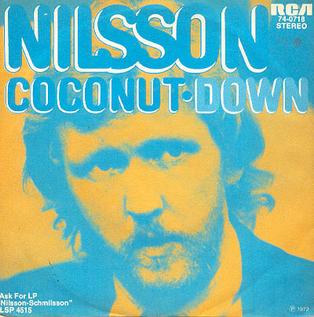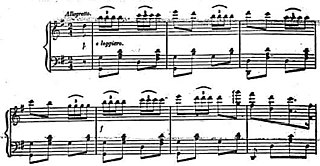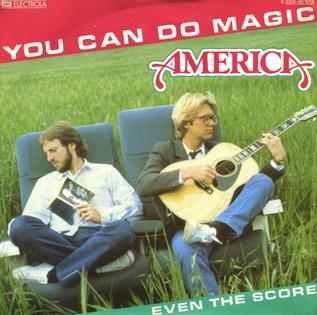Related Research Articles
"Innamorata" is a song written in 1955. The music was written by Harry Warren and the lyrics by Jack Brooks.
"Mr. Wonderful" is a popular song, written in 1955 written by Jerry Bock, George David Weiss, and Larry Holofcener, as the title song of a Broadway musical starring Sammy Davis Jr. The song was introduced in the musical by Olga James.
"If I Give My Heart to You" is a popular song written by Jimmy Brewster, Jimmie Crane, and Al Jacobs. The most popular versions of the song were recorded by Doris Day and by Denise Lor; both charted in 1954.
"How Important Can It Be?" is a popular song written by Bennie Benjamin and George David Weiss, and published in 1955.
"Sincerely" is a popular song written by Harvey Fuqua and Alan Freed and first released by The Moonglows in 1954.
"Suddenly There's a Valley" is a popular song written by Chuck Meyer and Biff Jones and published in 1955.
"I Almost Lost My Mind" is a popular song written by Ivory Joe Hunter and published in 1950. Hunter's recording of the song was a number one hit on the US Billboard R&B singles chart in that year.
"And That Reminds Me", also known as "My Heart Reminds Me", is a popular song.
"Shangri-La" is a popular song written by bandleader Matty Malneck and Robert Maxwell in 1946 with lyrics by Carl Sigman.

"Coconut" is a novelty song written and first recorded by American singer-songwriter Harry Nilsson, released as the third single from his 1971 album, Nilsson Schmilsson. It was on the U.S. Billboard charts for 14 weeks, reaching #8, and was ranked by Billboard as the #66 song for 1972. It charted in a minor way in the UK, reaching #42. "Coconut" did best in Canada, where it peaked at #5.
"Go On with the Wedding" is a popular song written by Arthur Korb, Charlie Purvis, and Milton Yakus and published in 1954. Its lyrics are reminiscent of another post-Korean War song, "Returned from Missing in Action."

"Buffalo Gals" is a traditional American song, written and published as "Lubly Fan" in 1844 by the blackface minstrel John Hodges, who performed as "Cool White". The song was widely popular throughout the United States, where minstrels often altered the lyrics to suit local audiences, performing it as "New York Gals" in New York City, "Boston Gals" in Boston, or "Alabama Girls" in Alabama, as in the version recorded by Alan Lomax and Shirley Collins on a 1959 field recording trip. The best-known version is named after Buffalo, New York.

"You Can Do Magic" is a song by singer-songwriter Russ Ballard that was recorded as a 1982 single by folk rock duo America from their album View from the Ground.
"Busted" is a song written by Harlan Howard in 1962. It was recorded by Johnny Cash for Cash's 1963 album Blood, Sweat and Tears. It has been recorded by several notable artists, including Ray Charles, Nazareth (1977), John Conlee (1982) and Chris Ledoux (1982).
Nicholas Richards is a British singer-songwriter and record producer, best known as frontman of 1980s synthpop/new wave band Boys Don't Cry.
Paul De Villiers is a sound engineer and record producer whose credits include Mr. Mister's best-selling 1985 album Welcome to the Real World and Yes's 1987 album Big Generator, which reached number 15 on the Billboard 200 albums chart.
"Lift Me Up" is a Top 40 song by British singer-songwriter Howard Jones. It was written and produced by Ross Cullum and Jones, and appeared on Jones' 1992 album In the Running. "Lift Me Up" has been featured on several of Jones' compilations and live albums, including 1993's The Best of Howard Jones, 1996's Live Acoustic America and 2004's The Very Best of Howard Jones.

"Lonely Ol' Night" is a rock song written and performed by singer-songwriter John Mellencamp. It appeared on his 1985 album Scarecrow and was released as the album's lead single, peaking at number 6 on the Billboard Hot 100. It also reached number 1 on the Top Rock Tracks chart, staying at the top spot for five weeks.

"Girl Can't Help It" is a song by the American rock band Journey, from their 1986 album Raised on Radio. The song was released as the third single from that album, following "Be Good to Yourself" and "Suzanne". Like the previous two singles, "Girl Can't Help It" was a Billboard top 40 hit, entering the chart on September 20, 1986 and peaking at number 17. It also became a top 10 rock hit, peaking at number 9 on the Billboard Mainstream Rock chart.
References
- ↑ "Songwriters Friends: The Ink Spots". Songwriters Hall of Fame. Archived from the original on 2015-07-23. Retrieved 2010-11-13.
- ↑ "Jack Lawrence Songwriter website". Archived from the original on July 9, 2012.
- ↑ "National Recording Registry Reaches 500". Library of Congress. March 21, 2018. Retrieved March 21, 2018.
- ↑ Whitburn, Joel (1986). Joel Whitburn's Pop Memories 1890-1954. Menomonee Falls, Wisconsin: Record Research Inc. p. 213. ISBN 0-89820-083-0.
- ↑ Whitburn, Joel (2004). The Billboard Book of Top 40 Hits (8th ed.). New York: Billboard Books. p. 240. ISBN 0-8230-7499-4.
- ↑ Whitburn, Joel (2004). The Billboard Book of Top 40 Hits. New York: Billboard Books. p. 494. ISBN 0-8230-7499-4.
- ↑ Whitburn, Joel (2004). Top R&B/Hip-Hop Singles: 1942-2004. Record Research. p. 408.
- ↑ Roberts, David (2006). British Hit Singles & Albums (19th ed.). London: Guinness World Records Limited. p. 97. ISBN 1-904994-10-5.
- ↑ "Wonderful". Madness. Retrieved 1 August 2022.